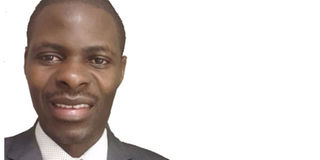The raging global civil war

Moses Khisa
What you need to know:
Reality of life. The raised expectations of a good life in a modern world of high-rise buildings, fancy cafes, slick smart phones now face up to the realities of economic hopelessness.
In the past decade or so, there has been widespread socio-political turmoil across the world. Protests and resistance of different stripes, at the ballot and on the streets, at university campuses, in corporate spaces that embody greedy and centres of power riddled with graft.
Struggles for dignity and fairness in a rapidly shifting socioeconomic landscape are playing out even in places you would least expect, in both poor and rich countries and among countries that are still wrestling with stability in politics, as well others that are supposedly well-established. From Paris to Port au Prince, Lebanon to Liberia, whether it is about the cost of living in Chile or the cost of university education in South Africa and Uganda, or the assertion of freedom in Hong Kong, the common thread remains the demand for justice and fairness.
We live in a deeply unequal world, utterly unfair and fundamentally skewed to the benefit of the powerful. In many countries, people occupying the lowest rungs of socioeconomic indicators are worse off every passing year, condemned to life on the margins. At the top of the wealth pyramid, by contrast, the statistics are startling. Consider this, as of 2013, there were 1,426 billionaires, that is, individuals with wealth of a billion (in dollars) or more.
These individuals and their families, according to economist Branco Milanovic, represented one hundredth of one hundredth of one per cent of the world population: Yes, one per cent of one per cent of one per cent! Their total wealth was $5.4 trillion, representing about two per cent of total global wealth, which is twice as much as the total GDP/wealth of the entire African continent: 1,426 individuals owning twice what more than a billion Africans own!
Fifteen countries contribute more than 70 per cent of these global billionaires, with the United States alone contributing more than 12 per cent.
If we narrow this down a little and take a subset of the billionaires, the bi-billionaires, individuals with two billion or more in wealth (in dollars), the statistic is even more shocking. In 2013, this group of bi-billionaires or what Milanovic refers to as the hyper-wealthy, was estimated to total 725 individuals and their net worth was estimated to be about $4.5 trillion.
In Western democracies, especially in the United States, wealth concentration is intimately tied to political influence and decision-making, which in turn perpetuates inequality. The super-rich are able to fund politicians who shield them against possible redistributive policies, especially through progressive taxation. In a sense, the richer one is, the more they are able to use their riches to protect their riches. The revolt at the ballot in Europe and the United States is partly attributable to the extreme economic injustice that has confined masses of people to living hand to mouth, barely getting along on a string-like pay cheque.
It is the feeling of anxiety and economic uncertainty that has driven Western publics in the corner of politicians firing up nationalist sentiments and xenophobic backlash. Today, the US is touted as having a very strong economy, supposedly the best in half a century. The actual reality is further from the official statistics and average figures. A low-skilled and unskilled worker in the US today has to do more than two jobs and more than 50 hours a week to make barely enough to modestly subsist. Two years ago, a national survey found that nearly half of Americans were unable to afford a $500 emergency.
Outside of the traditional, industrialised and developed West - in Africa, Asia, Eastern Europe and Latin America, the social dislocations wrought by capitalism and the promise of modernity that remains a far cry, have lit up an explosive atmosphere and placed many countries in near permanent crises.
Capitalism and its companion enabler, the ideology of free markets, announced to the colonised and oppressed peoples of the global south that the fates of their futures lay in embracing the two bedfellows. The magic of the market has proved no more than a mirage and promise of freedom has lost meaning. The raised expectations of a good life in a modern world of high-rise buildings, fancy cafes, slick smart phones now face up to the realities of economic hopelessness, social wilderness and cultural dislocation.
The inevitable is the recruitment into terrorist activities, as has gone on unabatedly in the Middle East, and the street fight to defeat corrupt and autocratic regimes as has unfolded in African and Latin American countries.
The political class, and especially autocratic rulers, are only swimming against a tide out of their rich. The information revolution has compounded matters and presented a completely different terrain of engagement, one over which the rulers have little control.
Dr Khisa is assistant professor at North Carolina State University (USA).
[email protected]




